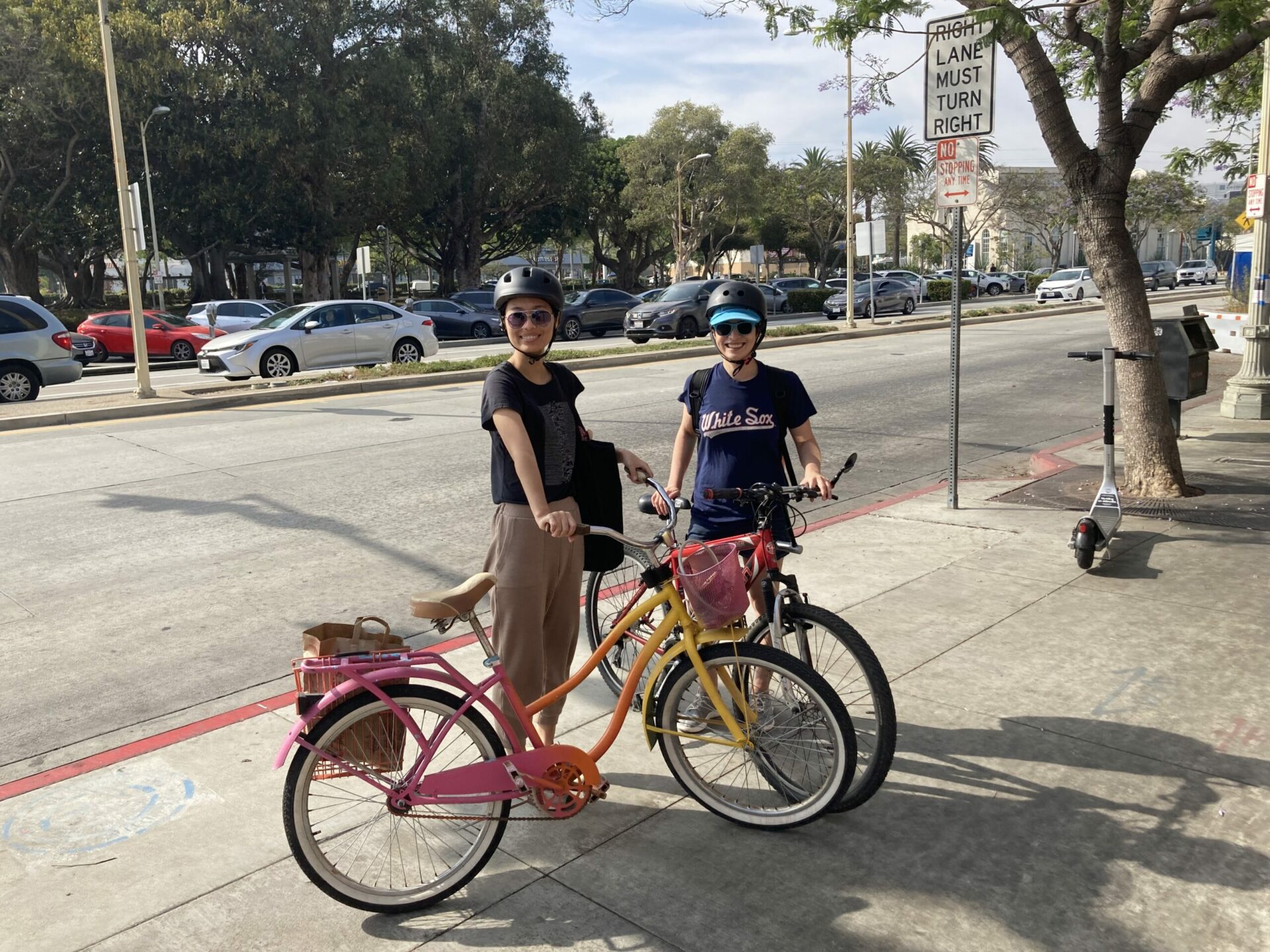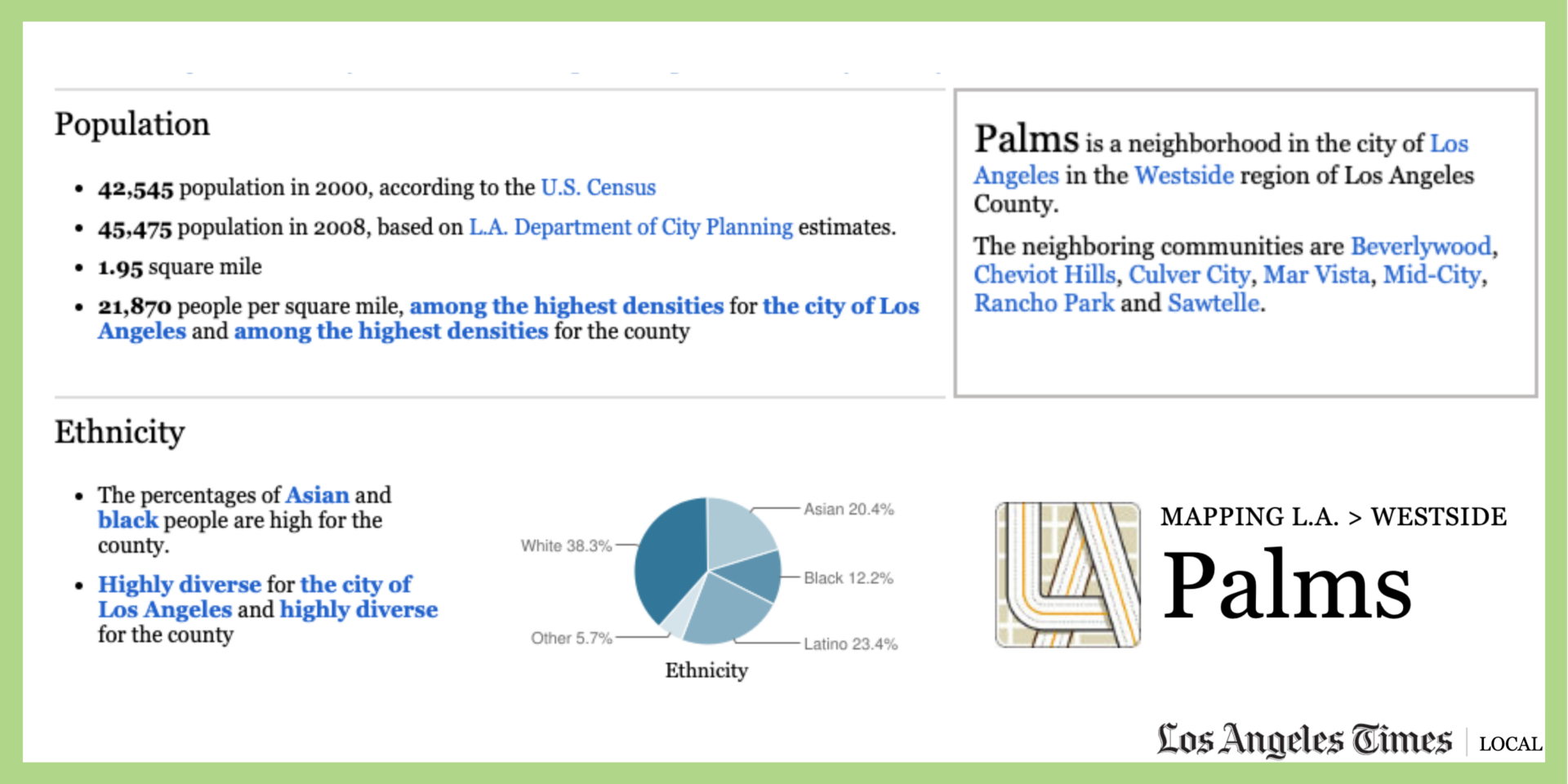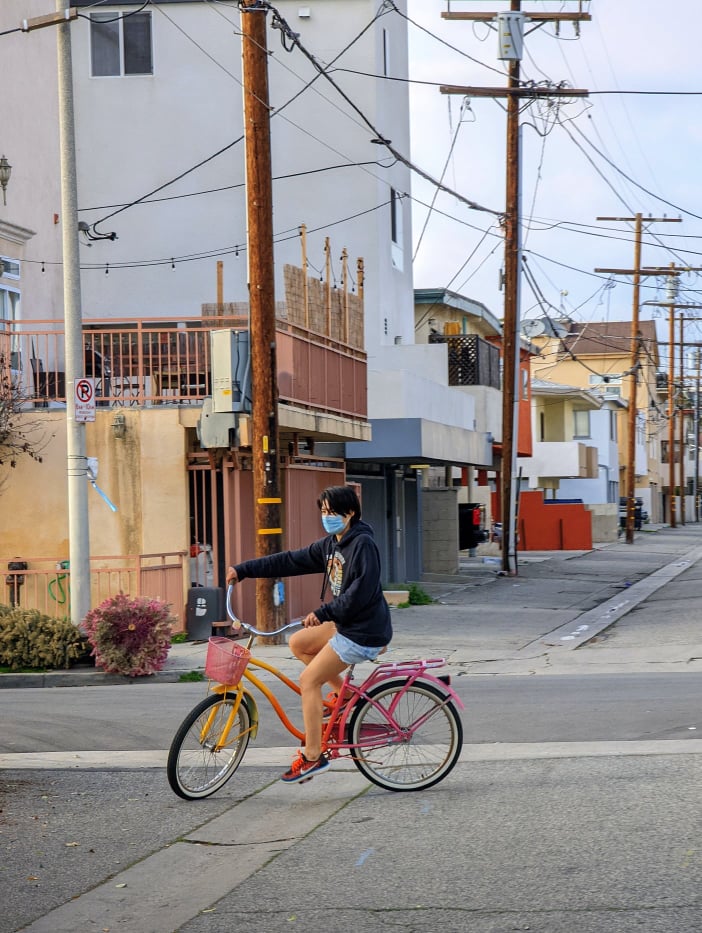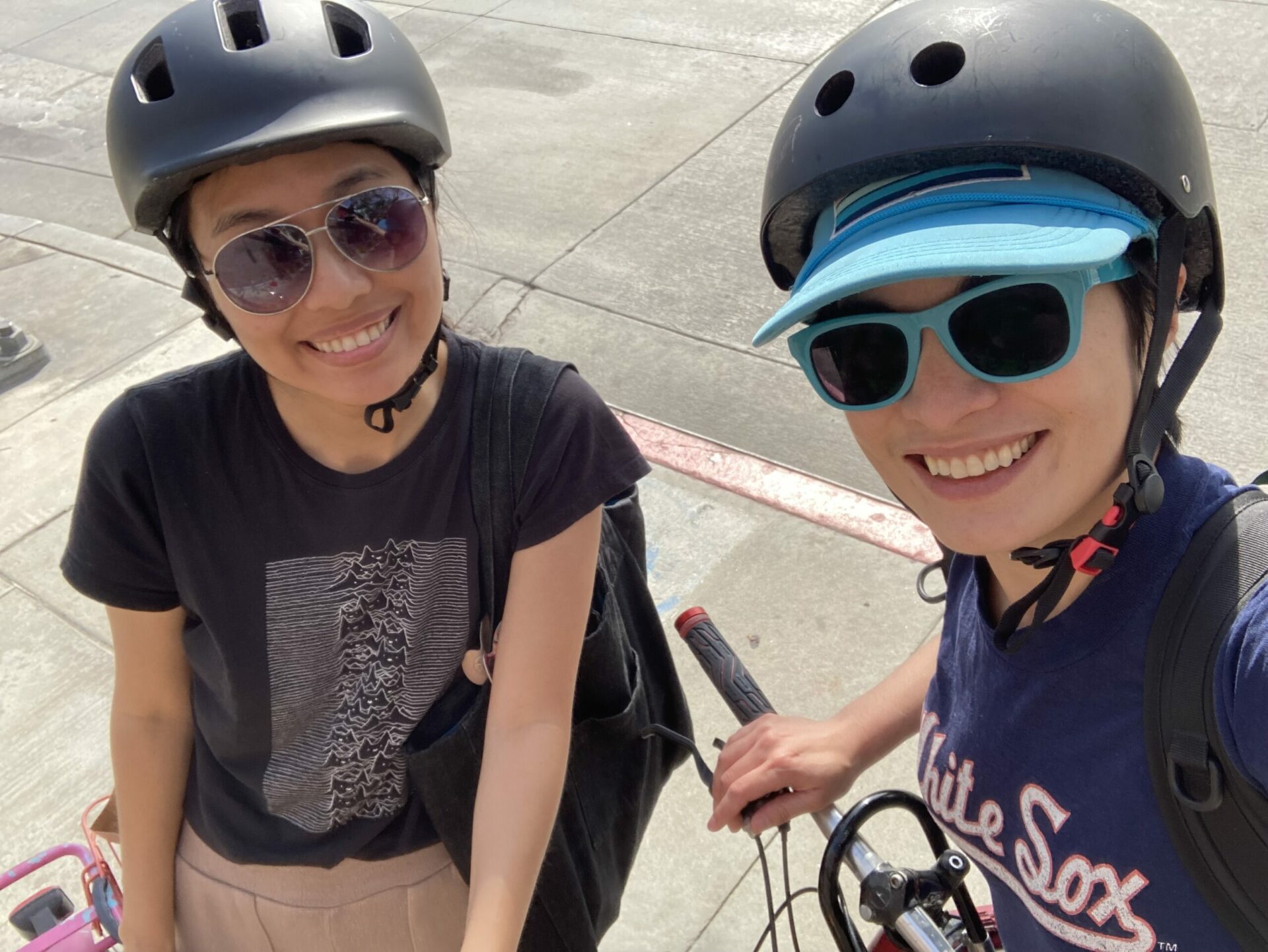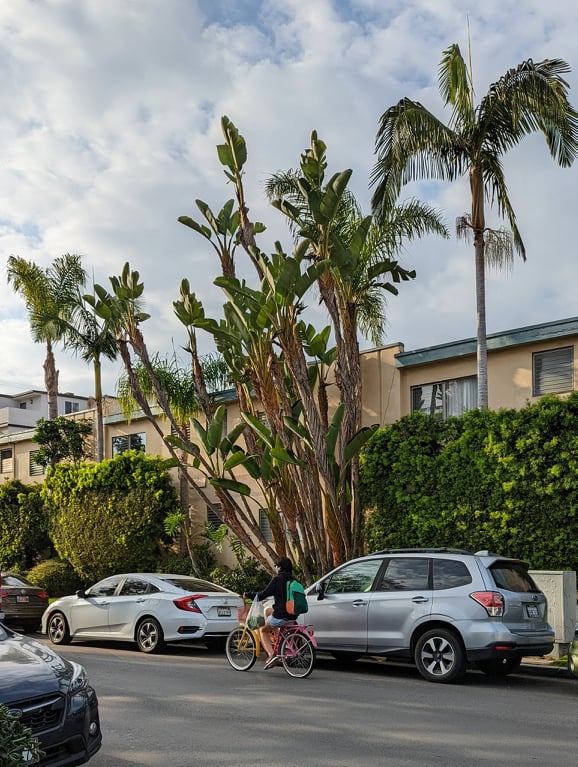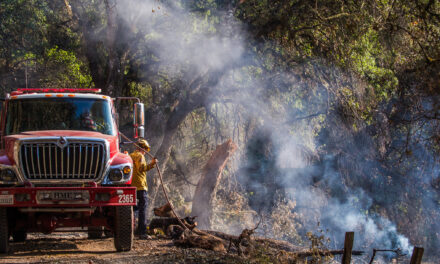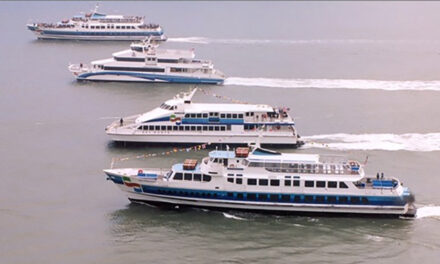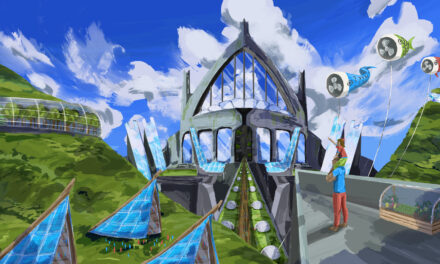Seeking Friends for the End of the World
“Could making friends with your neighbors be the secret to climate resilience? All my homies are locally-sourced, non-GMO and gluten-free.“
I’m riding my bike — a Schwinn that I got from my Buy Nothing group — on my way to a date when I hear someone yelling my name.
MAYLIIIIIIIIIN
It’s my friend Katrina and their partner, going for an evening walk. I wave wildly and keep going, grinning ear-to-ear.
Last year, I started using my Buy Nothing group to make friends with people who live in my neighborhood. The Buy Nothing project consists of hyperlocal Facebook groups where people give and receive freely — no exchange of money, goods or services required (or allowed). Need two limes, four coconuts or even a ride to LAX? Your neighbors got you.
As the name implies, one goal of the project is to reduce waste and consumption. If I receive a new-to-me humidifier from the group instead of buying one on Amazon, it’s a win for the environment and my pocketbook.
But what about friends? Can you source those from Buy Nothing too?
I live in Palms, a neighborhood in Los Angeles (mostly) south of the 10 and east of the 405. With 21,870 people per square mile, it’s one of the densest neighborhoods in both the city and county.
In an oft-cited urban planning study titled “The Influence of Urban Form on GHG Emissions in the U.S. Household Sector,” researchers from the University of Illinois at Urbana-Champaign found that doubling population density was associated with reducing greenhouse gas emissions from travel by 48% and home energy use by 35%.
But despite the salutary effects of density, the pandemic has caused people to flee from — not to — urban centers like New York City and Los Angeles.
When COVID hit in March 2020, I saw my friends every day — on Zoom. My writing friends and I seized the pandemic moment and wrote together Monday through Friday, from 9am to whenever we decided to call it quits. But as the months wore on, we stopped writing together virtually. And as 2020 rolled into 2021, I turned to my neighborhood Buy Nothing Facebook group for more than just foaming spiced gingerbread swirl hand soap and two-thirds of a caramel tres leches cake from Costco.
Seeking Friends for the End of the World
During these unprecedented times, The Guardian explained that we are “pruning” our friends like so many dead leaves from a prized shrubbery, while according to The Atlantic, “The Pandemic Has Erased Entire Categories of Friendship.”
Meanwhile, advice about how to make friends as an adult has only proliferated, with TikTok explainers, online courses and paid coaching targeted primarily at women.
I would describe it as the girlbossification of friendship. From this viewpoint, friendship functions much like a commodity, another way to level up your life, achieve your goals and supercharge your career.
But making friends with my neighbors makes me feel like I’m a kid again.
I ride my bike to the corner and wait — my new friend Jennie will be here soon. I can’t believe she only lives one block away from me! When I see her on her sunset-painted bike complete with matching pink basket, I smile. No, we’re not 8-years-old — we’re grown-ups in our 30s.
The Life You Save May Be Your Neighbor’s
In the “Unnatural Disasters” episode of the podcast “How to Save a Planet,” Dr. Samantha Montano mentions how taking a basket of muffins to your neighbor is one of the most effective ways to survive a natural disaster.
It feels calculated — a basket of muffins in exchange for pulling me from the rubble, please. But maybe that doesn’t matter. After all, I might be the one who saves them.
When an earthquake, wildfire or tornado hits, who will spare some of their emergency water supply so that you don’t go thirsty? If the zombie apocalypse dawns, who will lend you a machete, share their army rations or sacrifice themselves to the horde to save your small but scrappy crew, if not your eccentric neighbor who sings along to Katy Perry and knows a surprising amount about how to survive Agent Orange?
When my roommate got COVID, it was our neighbor and friend Mary (who we met through Buy Nothing) who left rapid tests and Emergen-C outside our door.
Every Thursday We Watch “The Bachelor”
Almost every time I’ve made a friend, it’s been through their persistence, not mine. If you want to be my friend, it’s best to approach slowly and cautiously, without making direct eye contact or any sudden movements.
I’m slow to trust, slow to open up, slow to make friends.
But every Thursday, I watch “The Bachelor” or “The Bachelorette” or some other cheesy reality TV show with my neighbors. Someone makes dinner and we drink cheap white wine from Trader Joe’s or margaritas in a can I scammed from my roommate.
As Aristotle would say, friendship is not strictly useful for surviving the climate crisis, it is an end in itself.
Making friends with my neighbors hasn’t just made me more climate resilient — it’s made me happier. I’m not friends with my neighbors because they have extra water stashed away for when the big earthquake comes (although that’s certainly good to know). I’m friends with them because they are good in and of themselves.
Let me put this another way—
I’m meeting up with Jennie with the sunset bike to co-work together in downtown Culver City. We could go separately. Or we could bike together. No big deal.
My whole life, I’ve gone alone. But now I’m at the corner, balanced with one foot on the curb, waiting for her to appear.
All photos courtesy of Maylin Tu.
More
- Buy Nothing
- Palms Profile: Mapping L.A.The Influence of Urban Form on GHG Emissions in the U.S. Household Sector
- Why Americans Are Leaving Downtowns in Droves
- Why ‘Pruning’ Friends Has Been So Common During the Pandemic
- The Pandemic Has Erased Entire Categories of Friendship
- Unnatural Disasters: How to Save a Planet






